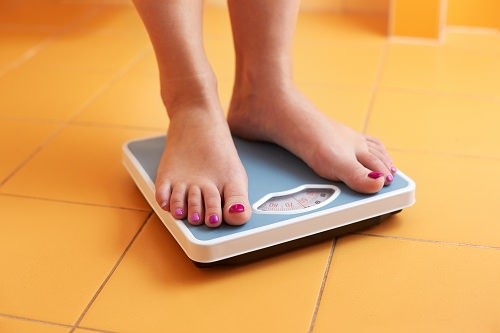At some point, both dieters and healthy eaters have to deal with false health and diet myths. The health press tends to come up with fascinating theories about what’s good for you and what isn’t. You can’t believe in them all, though, because many of them are myths. If you can’t achieve your weight loss or health goals, you should start looking for the reason why it’s so hard for you to stay slim and healthy. Test your knowledge with the 10 health and diet myths that follow.
1. MSG is terrible for health
Many people aren’t clear about what MSG or monosodium glutamate is – they just have a feeling that it’s bad because they’ve seen the labeling on fast food packaging declare MSG-free contents. In reality, MSG, which is added as a taste enhancer, is only bad for you if you are allergic to it. However, MSG avoidance as a general rule is a good idea for a different reason, since it is often a sign of a highly processed food, staying away from it helps you stay away from processed foods.
2. High-fructose corn syrup is worse than white sugar
High-fructose corn syrup is often vilified in health articles. This sweetener is said to be so bad for health that it makes white sugar look good. In reality, though, while HFCS is bad for health, it isn’t much worse than sugar – it only contains about 5% more fructose. With HFCS, too, avoidance is still a good idea because it is reliable sign of highly processed foods that are unhealthy in other ways.
3. If you don’t poop every day, you have a health problem
Some people have completely regular bowel movements; they have to go each day, first thing in the morning. This kind of schedule, though, is no healthier than any other. Warnings that irregular bowel movements are a sign of poor health make no sense. If you need your bowel movements to tell you something about your health, you should consult the Bristol stool chart of poop consistency. It can be a better indicator of health than regularity.
4. When you nuke your food, you nuke the nutrients
In general, microwaving food doesn’t result in destroyed nutrients. It does happen in some rare cases, though. Broccoli, for instance, contains a cancer-fighting nutrient called sulforaphane that doesn’t stand up to microwaving. The effect isn’t exclusive to microwave ovens – the nutrient is destroyed by any kind of cooking.
5. When you burn 3,500 calories, you lose a pound
Losing weight can be complex. People often oversimplify what they see to get a handle. Oversimplification is the problem with trying to put an exact number on the number of calories you need to burn to lose a pound. In reality, you may need to burn anything between 2,000 and 5,000 calories to lose a pound.
Read also – 10 Secrets of Naturally Thin People
6. You can tell how well your weight-loss plan is doing by weighing yourself
Taking comfort in seeing a drop in your weight when you step on the scales isn’t entirely logical. For every pound you lose, only a small part is likely to be fat. The rest of it is water. You also need to take into account the fact that when you exercise, you may put on muscle in place of fat – something that your scale will not register as a change. It’s a much better idea to track your progress by measuring your body fat percentage.
7. Foods that you eat too late at night fatten you
Some people believe that if you eat past 8 p.m., you won’t have time to burn the food off. It will then have time to settle down in your system and turn into fat. In truth, when you eat your meals has nothing to do with how fattening it turns out to be.
8. Pasta is fattening
Pasta is feared by people who are weight-conscious because it contains carbohydrates, something that certain diets warn against. However, avoiding carbohydrates can result in malnutrition – many important foods contain it. While it’s a good idea to avoid loading up too much on carbohydrates, it’s important to include them in your diet, in moderation.
9. You can lose weight with coffee
The coffee weight-loss theory goes on the idea that caffeine has the ability to suppress your appetite and boost your metabolism. While these claims are true, they do exaggerate. The appetite-suppressing and metabolism-boosting gains are so small that they aren’t able to make a difference to those hoping to lose weight.
10. Milk can be slimming
The belief that milk can help you lose weight comes from studies done 10 years ago that found that people who consumed dairy experienced fewer weight problems than those who did not. Other studies, though, have found no such link.
Read also – 10 Healthy Foods That Are Bad for Weight Loss
New health and diet myths seemingly come up every day. It can be one of the worst things you can do to your health to take every one of them seriously. You owe it to yourself to vet every idea thoroughly before you take it up. Did you believe in any of these health and diet myths?











